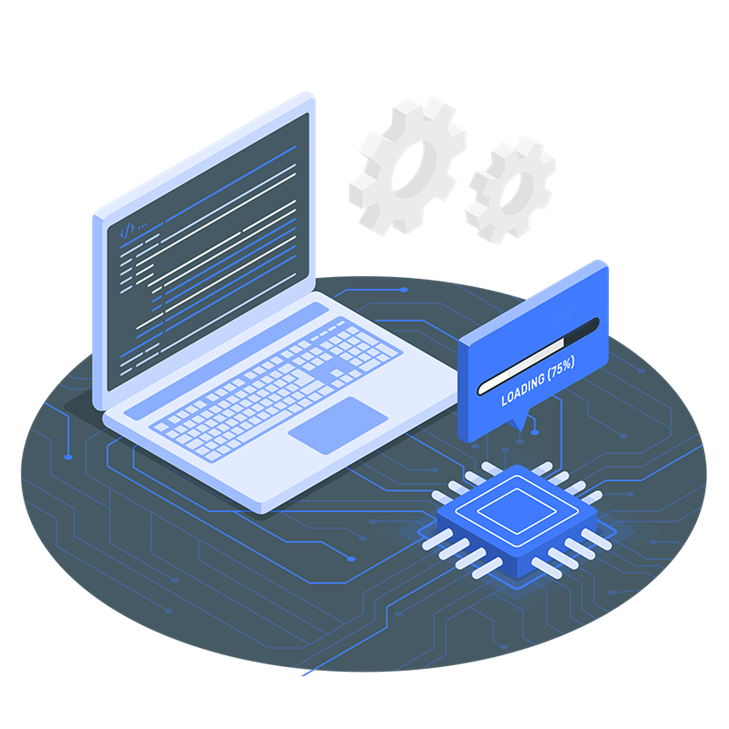How do you successfully outsource software development | The success factors

Outsourcing, today, has changed the face of the businesses around the globe. It has gradually become one of the common practices adapted by the businesses; for the sake of achieving success. Talking about the numbers, the outsourcing involved in the businesses was somewhere 524. 4 US billion dollars in the year 2015, with IT outsourcing being the largest amongst others. The Deloitte’s 2016 survey, mentions cost reduction as the primary motive behind the business outsourcings. However, it also acknowledges its other benefits, which include: better focusing on the core business processes, enhanced servicing quality, being a solution to the workforce capacity, etc.
What Outsource Software Development refers to?

Outsourcing software development refers to acquiring services of some third-party for performing the software development of projects. The projects may involve developing customized software products to commercially used software products.
Models for outsourcing software development

There are three most commonly used software development models, namely: project-based software outsourcing-- involves outsourcing of software development for a certain project only, team-based software outsourcing-- involves acquiring services of some skilled software development team for working on various projects, and the staff-augmented software outsourcing, which involves a third-party that provides a development team; however, the services-acquiring company stays responsible for looking after the development team, and the third-party stays responsible for the team’s output. Depending on the need and suitability, one of the mentioned models may be made to use.
Outsourcing software development successfully

That said, outsource software development does not happen to be some magic lamp; the outsourcing software development pros and cons coexist. Nevertheless, there are some factors to be considered for successfully outsourcing the software development, which are:
- Product and the Users - A clear picture
Defining the product requires having unambiguous and clear thoughts regarding the product; writing down your thoughts about the product may also be a part of it. One of the primary reasons why outsourcing software development services fail, is the lack of self-surety, regarding what is to be outsourced for development. It simply lessens the chances for a software development outsourcing to be successful, when the outsourcing company is itself not sure what they want or need to be developed. Defining the outlines or providing the rough ideas only, does simply not work. The product, for which development services are being acquired, should have a complete abstract sketch and the insights; the more the latter, the more it would be better, for the software development of the product. Moreover, with a clear idea about your requirement, choosing a relevant technology not only becomes easier, but finding a more pertaining and suitable service provider becomes easier too.
As for identifying the users, you’d need to remind yourself that appeasing or satisfying every customer is very difficult, if not impossible. Targeting your every user at one time, may lead to having none of them satisfied. Identify the users, who can be the best target for your potential product. The more relating the users are to the product, best would be the results for both, the user and the product owner.
In a nutshell, whether it is defining the product or identifying the users, it is always a good idea, generally and for software development outsourcing particularly, to avoid unrealistic expectations, decisions--taken in haste and miscalculation, and the unassumed consequences. The subsequent of which can be a wasteful of resources and a loss of prospective business clients and opportunities.
- Choosing a company- The methodology
‘Request for Proposal’, more commonly known as the ‘RFP’, is the most trustworthy, and the most popular method, when it comes to deciding the third-party, which should be entrusted with the software development. Wikipedia defines the RFP as:
“A request for proposal (RFP) is a document that solicits a proposal, often made through a bidding process, by an agency or company interested in procurement of a commodity, service, or valuable asset, to potential suppliers to submit business proposals. It is submitted early in the procurement cycle, either at the preliminary study, or procurement stage.”
Nonetheless, when the outsourcing software development company finds a services providing vendor, who’s the most suitable and pertaining to their company culture and development needs, the companies become eager and tend to receive the services from the very vendor, which is actually a not bad idea-- to stick. A survey reveals, almost the majority of the companies interested in outsourcing their development operations, prefer cooperating with the same third-party. Reason being, the very dynamic nature of businesses and the fact that entrusting someone with your development entails considerable risks; finding a third-party you can count on or which is reliable, is difficult. With no trust-issues between the outsourcing and the outsourced company, whatsoever, the expenses of cost and time reduce, while efficiency and productivity increases.
3- Choosing a company- Demonstrating the skills
Prior to outsourcing the software development projects, being certain about the capabilities, abilities, and skills of the company, that is to be outsourced with the development program. The potential vendor, even though seems promising and suitable, should be asked to provide a trial project. The trial or test project, would give a rather idea about what the very third-party is capable of delivering; for, every services providing company is quite rhetoric, when it comes to marketing the skills.
Following are some of the criterions, on which the third-party, after they share the test project, should be considered for the software development outsource:
-Pay close attention; whether the third-party had raised important points during the meetings (s). This would give you an idea of how much the party is involved and is serious about having your development program outsourced to it.
- Did you find the team honest regarding the progress they were making, while developing the very test project?
-Ask randomly; what are their time management strategies for the completion of the project; do they create deadlines of their own; prior to the actual project deadlines. This would enable in having an idea; how much they would be able to deliver the work and meet the deadlines.
Nonetheless, while making a company demonstrate its skills and what potential does they have to be responsible for your software development department, it might cost a little expense in the form of money and time; however, this would, certainly, save from a rather expense and chaos; in the long run.
- User Interface Design- A significant aspect
The user experience design, better known as the UX design, to many’s surprise, is one of the leading aspects, in determining, the very survival of the product-- for which the software development is being outsourced. However, the design is not limited to the apparent aspects only. The functionality of the product has also been started to be counted as a part of the product design. Reason being, the efficacy. The responsiveness and ease of the user interface and the user-friendliness of the UX design, together determine the success of a product; to a certain extent these days.
As long as its relationship pertaining to outsourcing is concerned, a company with great emphasis at the user design and interface, would enhance the success factor, as opposed to a company with lesser emphasis on user experience.
- Adopting the agile ways
If you’re concerned about the progress of your product’s development, or you want to have the development rather fast, adopting the agile methodology is the best way to do so. Industries, irrespective of their types, make use of agile methodologies. It’s importance, infact, has been acknowledged by the ‘Harvard Business Review’. The Wikipedia defines the agile methodology as:
“In software development, agile (sometimes written Agile) practices approach discovering requirements and developing solutions through the collaborative effort of self-organizing and cross-functional teams and their customer(s)/end user(s). It advocates adaptive planning, evolutionary development, early delivery, and continual improvement, and it encourages flexible responses to change.”
Moreover, by adopting agile ways, organizations better deal with the ever-changing and dynamic business world. The reasons, for primarily it is made to use is its ability to be accurate in predicting the cost and completion time required for a development programme. Also, its ability to be able to adapt the changes as per the requirement, its flexibility to meet the evolving business needs, and its capability to perfectly engineer the technicalities and design, is what makes it the hot-shot software development methodology.
Owing to its importance, choosing a third-party with expertise in agile; someone, who is familiar with its latest practices, is another factor to outsource software development successfully.
- Staying in touch
It is needless to say that no factor can contribute success to a development program, if there is no active involvement involved from your side. No matter, how many success factors are included, it is never going to pay-off with a lack of personal involvements. Therefore, it is quite an inevitable factor for successful outsource software development to communicate and collaborate, with the company entrusted with the software development, either on regular or occasional, however definite, intervals.